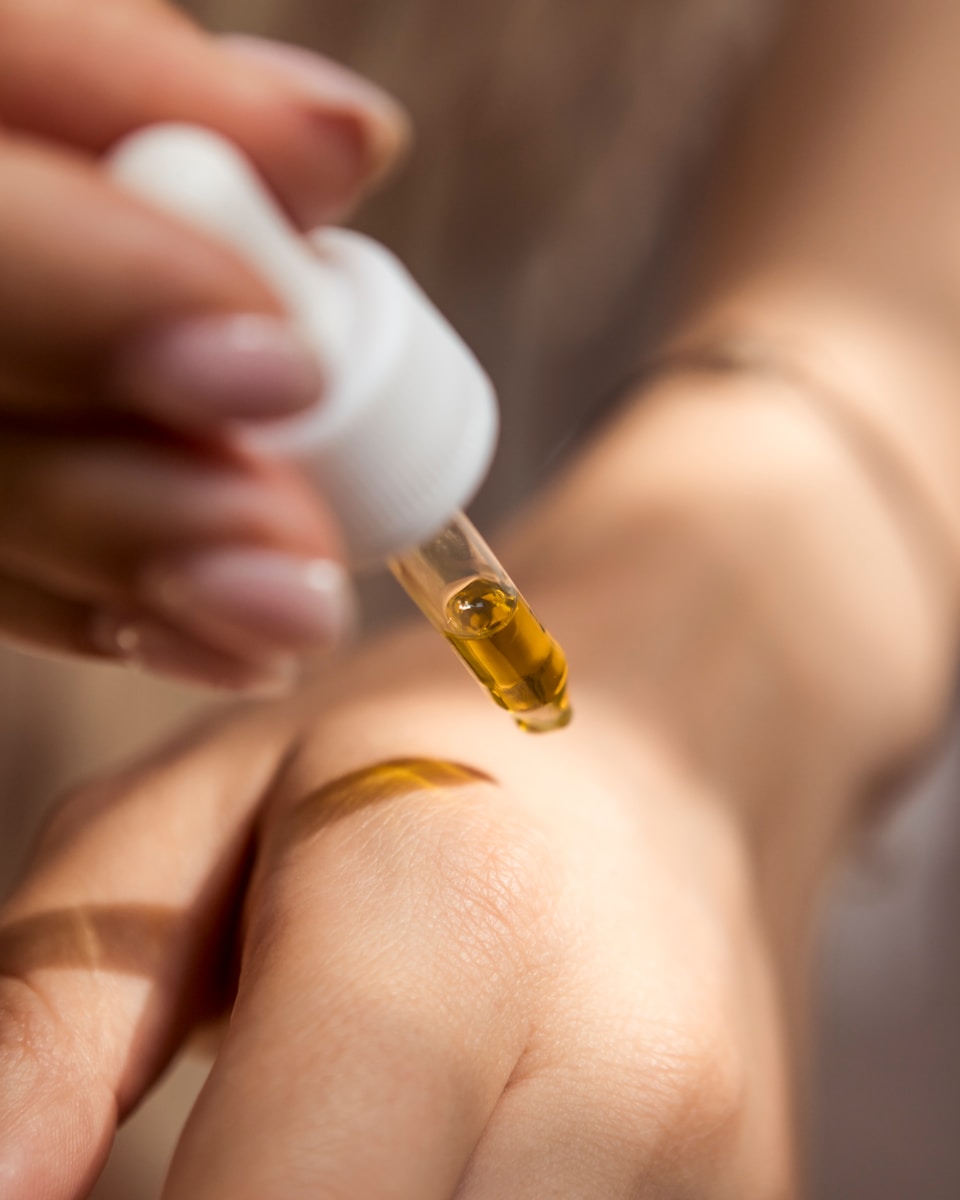How To Have Glowing Skin
The Importance of a Proper Skincare Routine
In the quest for glowing skin, a proper skincare routine plays a vital role. Many people overlook the significance of establishing and maintaining a consistent skincare regimen, but the truth is that it is one of the most important steps towards achieving a healthy and radiant complexion.
First and foremost, a skincare routine helps to cleanse your skin and remove any dirt, oil, or impurities that have accumulated throughout the day. This is especially important because these impurities can clog your pores, leading to breakouts and dull-looking skin. Regular cleansing allows your skin to breathe and function optimally.
Another key aspect of a skincare routine is exfoliation. By gently exfoliating your skin on a regular basis, you remove dead skin cells and reveal the fresh, new skin underneath. This not only brightens your complexion but also helps to stimulate cell turnover, which is essential for maintaining youthful-looking skin.

Moisturizing is also an integral part of any skincare routine. Hydrated skin is healthy skin, and a good moisturizer helps to replenish and lock in moisture, preventing dryness and promoting a soft, supple texture. Additionally, moisturized skin is less prone to fine lines and wrinkles, giving you a more youthful appearance.
Sun protection is another crucial component of a proper skincare routine. Harmful UV rays can penetrate the skin, leading to skin damage, premature aging, and even skin cancer. Applying a broad-spectrum sunscreen with at least SPF 30 every day, regardless of the weather, is vital for safeguarding your skin and maintaining its glow.
Consistency is key when it comes to skincare. While incorporating the right products and techniques is important, using them consistently is what will yield the best results. Consistency allows your skin to adapt to the products and reap the benefits over time. Whether it’s a morning and evening routine or a weekly treatment, sticking to a skincare regimen is crucial for achieving and maintaining glowing skin.
A proper skincare routine is essential for achieving glowing, healthy skin. Cleansing, exfoliating, moisturizing, and protecting your skin from the sun are all key steps that should be incorporated into your daily routine. Remember to be consistent and patient, as the results of a diligent skincare routine take time. With dedication and the right products, you can unlock the secret to radiant and beautiful skin.
The Essential Vitamins and Nutrients for Glowing Skin
Achieving glowing skin requires more than just a consistent skincare routine. The key to radiant and healthy skin lies in providing your body with the essential vitamins and nutrients it needs. Here are some essential nutrients and their benefits that can help you achieve that enviable glow:
Vitamin C
Vitamin C is a powerhouse antioxidant that is known for its ability to brighten the skin. It helps to reduce the appearance of dark spots and hyperpigmentation, giving your skin a more even tone. Additionally, vitamin C promotes collagen production, which helps to improve skin elasticity and reduce the appearance of fine lines and wrinkles.
Vitamin E
Vitamin E is another important antioxidant that helps to protect the skin from damage caused by free radicals. It also helps to moisturize and nourish the skin, leaving it soft and supple. Vitamin E is particularly beneficial for dry and dehydrated skin, as it helps to lock in moisture and prevent moisture loss.
Omega-3 Fatty Acids
Omega-3 fatty acids are essential fats that are found in certain foods like fatty fish, walnuts, and flaxseeds. These healthy fats help to strengthen the skin’s barrier, improving its ability to retain moisture and keep irritants out. Omega-3 fatty acids also have anti-inflammatory properties, which can help to calm redness and irritation in the skin.
Zinc
Zinc is an essential mineral that plays a crucial role in maintaining healthy skin. It helps to regulate oil production, reduce inflammation, and protect the skin from UV damage. Zinc is particularly beneficial for acne-prone skin, as it helps to control sebum production and prevent clogged pores.
B vitamins
The B vitamins, including Biotin (B7), Niacin (B3), and Riboflavin (B2), are essential for healthy skin. Biotin helps to strengthen the skin’s infrastructure, improving its elasticity and overall health. Niacin has been shown to reduce redness and inflammation in the skin, while Riboflavin helps to protect the skin from oxidative stress.
To incorporate these essential nutrients into your diet, focus on consuming a variety of nutrient-dense foods. Include plenty of fruits and vegetables, especially citrus fruits like oranges and strawberries that are rich in vitamin C. Incorporate foods like avocados, almonds, and spinach that are high in vitamin E. Add fatty fish like salmon or mackerel to your diet for a good source of omega-3 fatty acids. Additionally, consider taking a daily supplement to ensure you’re getting an adequate amount of these essential vitamins and minerals.
Remember, achieving glowing skin isn’t just about what you apply topically. Nourishing your body from within with these essential vitamins and nutrients is the key to unlocking radiant and healthy skin. So, make sure to prioritize a well-balanced diet and provide your skin with the nourishment it needs for that enviable glow.
READ ALSO: How To Have A Healthy Liver
Glowing Skin: Effective Home Remedies for Achieving Radiant Skin
Maintaining healthy and glowing skin doesn’t always require expensive treatments or products. There are several effective home remedies that can help you achieve a radiant complexion. These remedies, made from natural ingredients, are not only cost-effective but also free from harsh chemicals that can potentially harm your skin. these remedies into your skincare routine can significantly improve the appearance and texture of your skin.
One of the most popular home remedies for glowing skin is the use of a honey mask. Honey is a natural humectant and has antimicrobial properties, making it ideal for hydrating and revitalizing the skin. Apply a thin layer of raw honey to your face and leave it on for about 15 to 20 minutes. Rinse off with lukewarm water to reveal soft, supple, and glowing skin.
Another effective remedy is the use of a yogurt and turmeric mask. Yogurt contains lactic acid, which helps to exfoliate dead skin cells and promote cell regeneration. Turmeric, on the other hand, is known for its anti-inflammatory and antioxidant properties. Mix one tablespoon of yogurt with a pinch of turmeric powder to form a paste. Apply the paste to your face and let it sit for approximately 15 to 20 minutes before rinsing off. This mask helps to brighten the skin and reduce the appearance of dark spots and blemishes.
Lemon juice is also a fantastic home remedy for achieving glowing skin. It contains vitamin C, which helps to boost collagen production and improve skin elasticity. Additionally, the citric acid in lemon juice acts as a natural exfoliant, sloughing off dead skin cells and revealing a fresher complexion. Squeeze the juice of a lemon into a bowl, dilute it with equal parts water, and apply it to your face using a cotton ball. Leave it on for about 10 minutes before rinsing off with water. However, avoid using lemon juice if you have sensitive skin or any open wounds, as it may cause irritation.
Aloe vera gel is another excellent natural remedy for achieving healthy and radiant skin. It has soothing and moisturizing properties that can help calm inflamed skin and promote healing. Apply fresh aloe vera gel directly to your face and leave it on for about 15 to 20 minutes. Rinse off with water and pat dry. Regular use of aloe vera gel can help reduce acne, fade scars, and improve overall skin texture.
These effective home remedies into your skincare routine can significantly enhance the radiance and health of your skin. However, it’s important to note that everyone’s skin is unique, and what works for one person may not work for another. It’s always advisable to do a patch test before trying out any new remedy to ensure that you don’t have any adverse reactions. Remember to consult with a dermatologist if you have any underlying skin conditions or concerns. With consistency and patience, you can achieve a glowing and flawless complexion with the power of natural home remedies.
The Role of Hydration in Maintaining a Healthy Complexion
Having a healthy and glowing complexion is a goal for many individuals. However, achieving this desired result requires more than just using skincare products. One crucial factor that often goes overlooked is hydration. Adequate hydration plays a significant role in maintaining a healthy complexion and achieving that natural glow we all desire.
Water is essential for our bodies, and this includes our skin. Our skin cells, just like any other cell in our body, are made up of water. When we are dehydrated, our skin becomes dry, dull, and prone to various skin issues such as flakiness, itchiness, and wrinkles. On the other hand, when our bodies are well-hydrated, our skin appears plump, soft, supple, and radiant.
Water helps to flush out toxins from our bodies, contributing to clear and youthful skin. It aids in the elimination of waste products, such as excess oil and dirt, which can otherwise clog our pores and lead to acne breakouts. Hydrated skin is also more capable of maintaining its elasticity, which reduces the appearance of fine lines and wrinkles.
In addition to drinking an adequate amount of water daily, incorporating hydrating foods into your diet can further promote a healthy complexion. Foods with high water content, such as cucumber, watermelon, and strawberries, can hydrate your skin from the inside out. These water-rich foods not only provide hydration but are also packed with vitamins, antioxidants, and minerals that contribute to overall skin health.
External hydration is equally important as internal hydration. Using a moisturizer that is suited to your skin type can help lock in moisture and create a protective barrier against environmental factors that can dehydrate your skin. Look for moisturizers that contain ingredients like hyaluronic acid, ceramides, and glycerin, as these help attract and retain moisture in the skin.
When it comes to hydrating your skin, consistency is key. Incorporate a hydrating skincare routine into your daily regimen that includes cleansing, toning, moisturizing, and using hydrating masks or serums. It is important to note that excessive exposure to hot water when washing your face or taking long, hot showers can strip your skin of its natural oils, leading to dryness. Therefore, opting for lukewarm water and keeping showers short can help maintain the skin’s natural hydration.
Maintaining a healthy complexion and achieving a natural glow goes beyond using skincare products alone. Hydration, both internally and externally, plays a vital role in promoting healthy, radiant skin. By ensuring you drink an adequate amount of water, incorporating hydrating foods into your diet, and using the right skincare products, you can achieve a well-hydrated and glowing complexion that will be the envy of others.
Choosing the Right Products for Your Skin Type
When it comes to achieving and maintaining glowing skin, choosing the right skincare products for your specific skin type is crucial. With the wide array of options available in the market, it can be overwhelming to find products that cater to your individual needs. However, with a little knowledge and understanding of your skin type, you can create a skincare routine that will nourish and enhance your complexion.
Determining Your Skin Type
Before delving into the world of skincare products, it is essential to identify your skin type. There are generally four main categories: normal, oily, dry, and combination. Normal skin typically has a balanced level of moisture and is not prone to excess oil or dryness. Oily skin tends to produce more sebum, resulting in a shiny complexion and potential acne breakouts. Dry skin lacks moisture and can often feel tight or rough. Combination skin, as the name suggests, is a mix of different skin types, with certain areas being oily, while others are dry.
Selecting the Right Cleanser
Cleansing is the foundation of any skincare routine, and using the right cleanser is essential for maintaining healthy skin. If you have normal or dry skin, opt for a gentle, hydrating cleanser that will effectively remove impurities without stripping away natural oils. For oily or combination skin, a foaming cleanser can help control excess oil and keep breakouts at bay. Avoid cleansers that contain harsh ingredients such as sulfates, as they can cause irritation and dry out your skin.
Choosing the Right Moisturizer
Proper moisturization is key to glowing skin, regardless of your skin type. Look for a moisturizer that suits your specific needs. For dry skin, opt for a rich, nourishing cream that will provide long-lasting hydration. If you have oily or combination skin, choose a lightweight, oil-free moisturizer that won’t clog your pores. Consider using a moisturizer with added ingredients like hyaluronic acid or ceramides, which help retain moisture and improve the skin’s barrier function.
Adding Sunscreen to Your Routine
No skincare routine is complete without sunscreen, as it helps protect your skin from harmful UVA and UVB rays. Look for a broad-spectrum sunscreen with an SPF of at least 30 and apply it generously to all exposed areas of your skin. If you have oily or acne-prone skin, choose a lightweight, non-comedogenic sunscreen that won’t clog your pores or leave a greasy residue.
Consulting a Dermatologist
If you’re still unsure about which products are best for your skin type, consider consulting a dermatologist. They can assess your skin’s specific needs and recommend the most suitable products and ingredients for you. Additionally, they can provide guidance on any skin concerns or conditions you may have, such as acne, rosacea, or hyperpigmentation.
Selecting the right skincare products for your skin type is fundamental in achieving and maintaining a glowing complexion. By understanding your skin’s unique characteristics and using products tailored to its needs, you can improve its overall health and appearance. Remember to always patch test new products, introduce them gradually into your routine, and listen to your skin’s feedback to ensure optimal results.
Conclusion
Achieving glowing skin requires a combination of proper skincare routine, essential vitamins and nutrients, effective home remedies, hydration, and selecting the right products for your skin type. By following these guidelines, you can enhance your complexion and achieve the radiant skin you desire.
To begin, establishing a proper skincare routine is crucial in maintaining healthy and glowing skin. Cleansing, toning, and moisturizing should be the foundation of your daily routine. Cleanse your skin to remove dirt, excess oil, and impurities, followed by toning to balance the pH levels of your skin and moisturizing to effectively hydrate and nourish your skin. Additionally, exfoliating regularly to remove dead skin cells can help to reveal a fresh and glowing complexion.
Essential vitamins and nutrients play a vital role in achieving radiant skin. Vitamins A, C, and E are particularly beneficial. Vitamin A aids in cell turnover, reducing the appearance of wrinkles and promoting a smoother complexion. Vitamin C helps to brighten the skin, fight off free radicals, and stimulate collagen production. vitamin E acts as a potent antioxidant, protecting the skin from environmental damage and maintaining its youthful appearance.
There are numerous effective home remedies that can aid in achieving glowing skin naturally. Lemon juice, for instance, is an excellent natural bleach and can help lighten dark spots and pigmentation. Applying a honey mask can moisturize and soften the skin, while the antimicrobial properties of turmeric can reduce acne and improve overall skin tone. Furthermore, using aloe vera gel can soothe irritated skin and promote healing, while rosewater can balance the skin’s pH levels and provide a refreshing glow.
Hydration is a key factor in maintaining a healthy complexion. Drinking an adequate amount of water each day helps to flush out toxins and keeps your skin well-hydrated, leading to a radiant and plump appearance. Additionally, consider incorporating hydrating skincare products that contain ingredients such as hyaluronic acid, glycerin, and ceramides, as they help lock in moisture and improve your skin’s overall texture.
Choosing the right products for your specific skin type is essential. Whether you have dry, oily, or sensitive skin, understanding your skin’s needs will allow you to select suitable products that cater to your concerns. For instance, individuals with oily skin should opt for oil-free and non-comedogenic formulas to prevent clogged pores, while those with dry skin should prioritize hydrating and moisturizing products to combat flakiness and tightness.
Achieving glowing skin is a result of proper skincare routine, essential vitamins and nutrients, effective home remedies, hydration, and selecting the right products for your specific skin type. By implementing these practices into your daily skincare regimen, you can attain a radiant and healthy complexion that will leave you feeling confident and beautiful.
Originally posted 2024-02-03 19:27:08.



